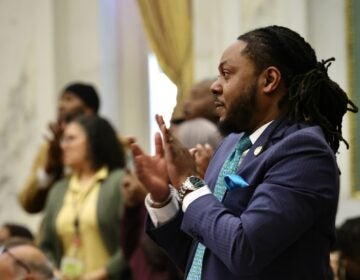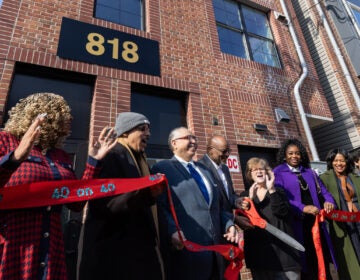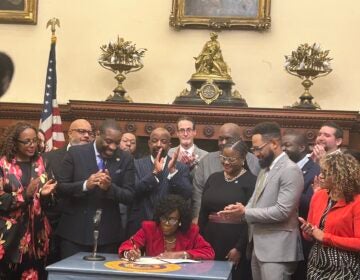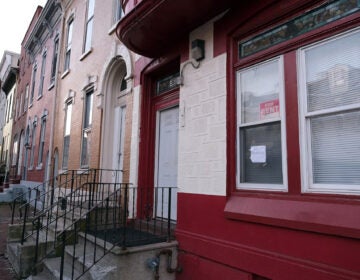Philly City Council weighs zoning tweak for ‘Turn the Key’ projects
The legislation is designed to make it easier for developers to build homes in certain sections of the city.
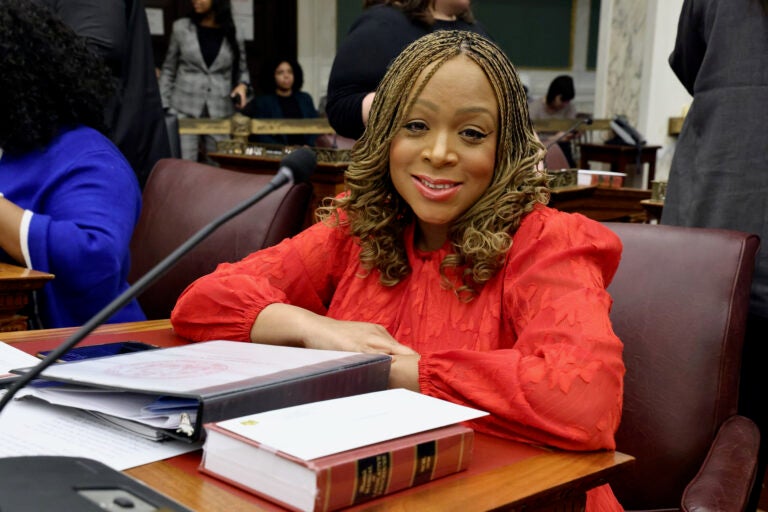
Philadelphia City Councilmember Jamie Gauthier. (Emma Lee/WHYY)
Have a question about Philly’s neighborhoods or the systems that shape them? PlanPhilly reporters want to hear from you! Ask us a question or send us a story idea you think we should cover.
Philadelphia City Councilmember Jamie Gauthier has introduced legislation that would exempt Turn the Key projects from a zoning overlay designed to keep housing accessible in fast-developing areas.
The Mixed Income Neighborhoods Overlay, sometimes referred to as “MIN,” requires developers to make 20% of the units affordable in any new residential project with 10 or more units. Known as inclusionary zoning, the overlay applies to the 3rd, 4th and 7th council districts, which include swiftly gentrifying sections of West and North Philadelphia like University City and Kensington.
Gauthier’s measure is largely designed to remove an unintended redundancy created by Turn the Key developments that trigger the overlay’s requirements — a redundancy that has surfaced with projects slated to rise in the city’s Mantua neighborhood. The situation has led some developers to divide their proposals into two separate projects in order to bypass those requirements, a strategy that creates extra red tape and potential delays in construction.
“This exclusion is about making sure that MIN does what it was always intended to do, which is to promote the development of more genuinely affordable housing,” Gauthier said after Thursday’s Council session.
The redundancy is rooted in the level of affordability the overlay and Turn the Key are designed to add to the market.
The single-family homes created through Turn the Key are typically sold to households earning 60% of area median income, when the program’s subsidies are taken into account. That translates to $68,820 a year for a family of four, according to state data.
Similarly, the affordable units created through the overlay must be for households earning up to 60% of area median income, a figure that includes places outside of Philadelphia.
“I’ve said from the start that I was always willing to make adjustments to make MIN work even better … and we’re doing it again by creating this exclusion for Turn the Key,” Gauthier said.
The legislation comes as Mayor Cherelle Parker and City Council work to finalize the administration’s ambitious housing proposal, a plan designed to create or preserve 30,000 units of housing during Parker’s first term.
Turn the Key, a popular program launched in 2022, is poised to play a major role in achieving that goal. During a special session of City Council last week, Parker told lawmakers she wanted to put the program on “steroids.”
The program’s goal is to create 1,000 homes. To date, a total of 195 homes have been developed and sold. Another 590 homes are either under agreement to be sold, under construction or approved for development.

Get daily updates from WHYY News!
WHYY is your source for fact-based, in-depth journalism and information. As a nonprofit organization, we rely on financial support from readers like you. Please give today.




